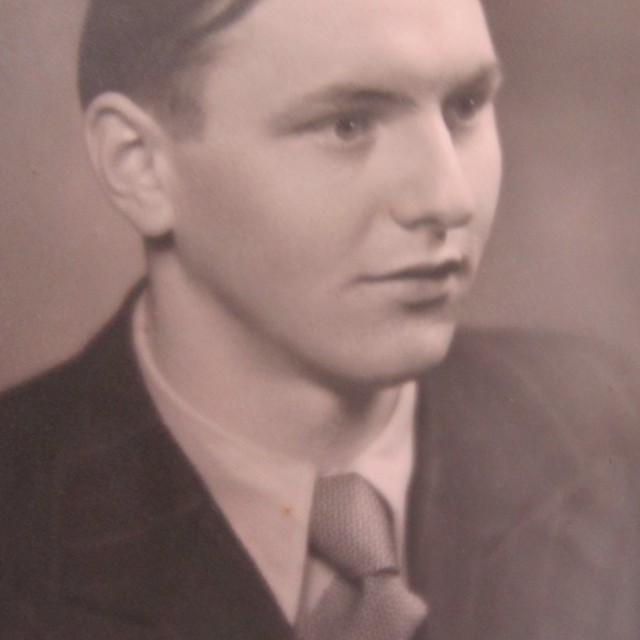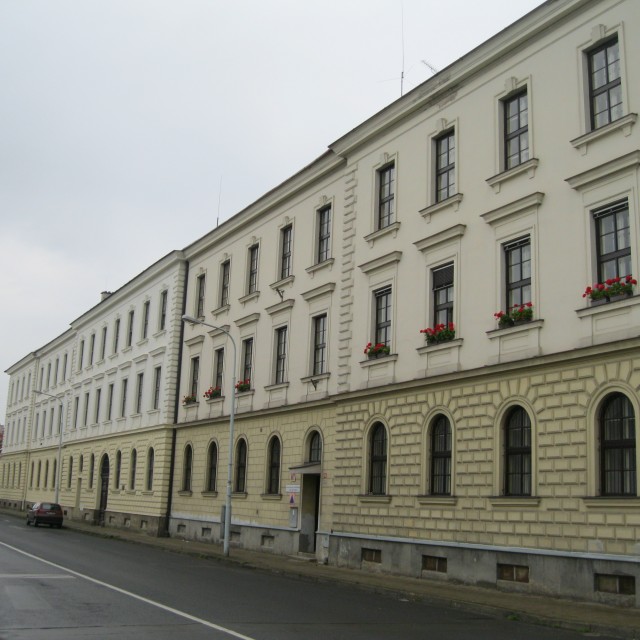For an anti-German statement
Jan Aust was one of the few Czechs who lived in the predominantly German county-town of Šumperk during the war. In 1942, the Gestapo arrested Jan and put him in prison for his anti-German statements. The prison was located in the so-called "Robotárna," (sweatshop), in Šumperk: "After they took me there, they put me in a prison cell, where I was left in complete darkness. Because I couldn't see anything, I just found the bunk bed in the dark, on which I was supposed to sleep and sat down on it. The first day, we had a carrot for lunch without any meat and I didn't even eat because I was very afraid and I wasn't hungry," says Jan Aust about his solitary confinement. After some time, he was transferred to a cell with several other Czechs and also a Jew: "There were no toilets on that cell. We had to use a bucket. The Jew once had to clean the bucket and when he brought it back, it was poorly cleaned and the superintendent battered with the broom on his head. The Jews got the worst treatment there," says Jan Aust.
Hodnocení
Abyste mohli hodnotit musíte se přihlásit!
Trasy
Příběh není součastí žádné trasy.
Komentáře

Jan Aust
Jan Aust was born in 1922 in Hrabenov. However, he spent most of his life in nearby Šumperk, (Mährisch Schönberg in German), where his parents moved when he was two years old. They became a part of the Czech community of Šumperk. In 1930, 3,434 inhabitants of Šumperk claimed allegiance to the Czech nationality out of a total population of 15,718. After the Munich Agreement, the overwhelming majority of the Czech population left Šumperk and moved to the interior of the country. Those who stayed were subsequently subjected to a rigorous oversight of the new German administration. At the time, Jan Aust was studying at a Czech grammar school. However, the school was shut down by the Nazis and Jan had to serve an apprenticeship as a mechanic. One of the German apprentices denounced Jan to the police for his anti-German statements and Jan Aust was thus sentenced to nine months in prison in 1942. More sentences followed suit. He was allegedly imprisoned for three months just for having called a German girl a "German goose." Right after the end of the war, he joined the revolutionary guard and was sent to Vernířovice, (Wermsdorf in German), where he – among other things – was helping Soviet soldiers to seize the stashed-away weapons of the members of the Werwolf. After a few days, however, he left the revolutionary guard because he had been almost shot in an accident that involved the improper manipulation of a gun by a fellow guard. After this episode, he took up the job of a state caretaker in Šumperk responsible for the management of a delicatessen grocery store. After six months, his food shop was taken over by the north-Moravian consumer union and because he dissented with the takeover, he left the shop. He gradually went through a number of occupations and for the last 25 years before his retirement, he worked in construction. Jan recalls how his father – a former sole trader who as such had no entitlement to draw pension – lost his entire savings in a single day as a result of the monetary reform of 1953. After 1990, Jan Aust served for a long time as the chairman of the district committee of the Czech Union of Freedom Fighters in Šumperk. Today, he still lives in Šumperk and he's one of the last living pre-Munich Czech inhabitants of Šumperk.




